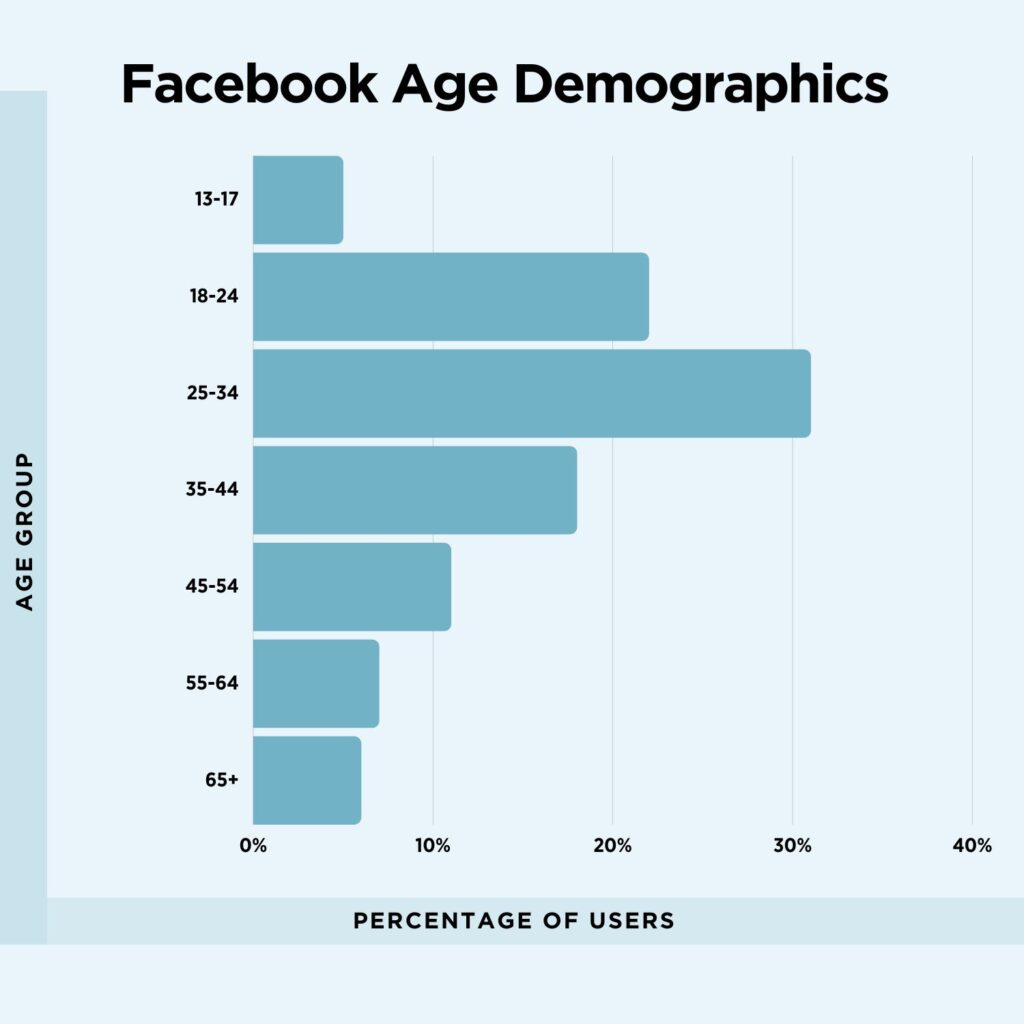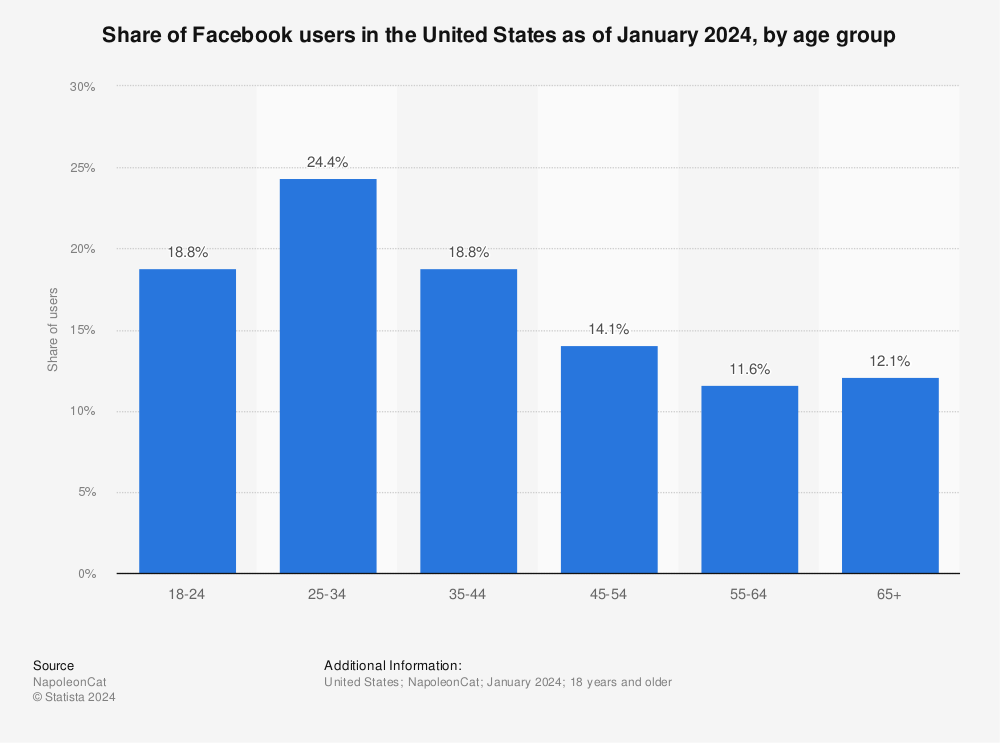Facebook has become a cornerstone of modern social interaction, but do you really know what is the age to be on Facebook? It’s not just about creating an account—it’s about understanding the rules, responsibilities, and potential risks involved. In this article, we’ll dive deep into the legal age limit for Facebook users, why it matters, and how parents can guide their teens in navigating this digital world safely. So buckle up, because we’re about to break it down for you like we’re sitting across the table having a real chat!
Let’s face it, social media isn’t going anywhere anytime soon. And while platforms like Facebook offer endless opportunities for connection, they also come with certain rules and restrictions. One of the most important questions parents and teens often ask is, "What is the age to be on Facebook?" The answer isn’t as simple as it seems, so we’ll explore everything from the legal age requirements to the psychological implications of early social media use.
Whether you’re a concerned parent, a curious teen, or someone who just wants to stay informed, this guide will give you all the info you need. We’ll cover the ins and outs of Facebook’s age policy, why it’s in place, and how to ensure a safe online experience. So grab your favorite drink, and let’s get started!
Table of Contents
- What Is The Legal Age To Be On Facebook?
- Why Is There An Age Limit On Facebook?
- Facebook’s Age Policy Explained
- Consequences Of Breaking The Age Rule
- Safety Tips For Young Facebook Users
- How Parents Can Guide Their Kids On Facebook
- Alternatives For Kids Under The Age Limit
- Facebook Usage Statistics Among Teens
- Legal Considerations For Minors On Facebook
- Final Thoughts: Navigating Facebook Responsibly
What Is The Legal Age To Be On Facebook?
Alright, let’s cut to the chase. The legal age to create a Facebook account is 13 years old. That’s right, 13. But why 13? Well, it’s not just some random number Facebook pulled out of a hat. This age requirement is actually rooted in legal regulations, specifically the Children’s Online Privacy Protection Act (COPPA), which restricts the collection of personal data from kids under 13 without parental consent.
So, if you’re thinking about signing up for Facebook and you’re younger than 13, hold your horses. Facebook takes this rule pretty seriously, and they’ve got systems in place to enforce it. But hey, don’t worry—we’ll talk about what happens if someone tries to bypass these rules later on. For now, just remember: 13 is the magic number.
Why 13 Matters
Here’s the deal: 13 is the age where experts believe kids start developing a better understanding of privacy, consent, and online behavior. It’s not a perfect age, but it’s a starting point for ensuring that users are mature enough to handle the complexities of social media. Think about it—would you trust a 10-year-old to manage their own bank account? Probably not. The same logic applies here.
Why Is There An Age Limit On Facebook?
Now that we know the age limit, let’s talk about why it exists. It’s not just about following the law—there are real reasons behind this rule. First and foremost, Facebook wants to protect young users from potential dangers like cyberbullying, data misuse, and exposure to inappropriate content. Let’s break it down:
- Data Privacy: Kids under 13 are more vulnerable to having their personal information misused. COPPA was created to safeguard them from companies that might exploit their data.
- Social Risks: Social media can be a double-edged sword. While it connects people, it also exposes users to negative behaviors like trolling, harassment, and misinformation. Younger kids might not have the emotional maturity to handle these situations.
- Parental Oversight: By setting an age limit, Facebook encourages parents to play a more active role in their kids’ online lives. This helps ensure that kids are using the platform responsibly.
It’s all about creating a safer, more responsible digital environment. And honestly, who can argue with that?
Facebook’s Age Policy Explained
Facebook’s age policy is pretty straightforward: you need to be at least 13 to create an account. But how does Facebook enforce this rule? Well, it’s a combination of self-reported information and automated systems. When you sign up for Facebook, you’re asked to enter your birthdate. If you’re under 13, the system won’t let you proceed. Simple, right?
However, Facebook also relies on user reports and algorithmic detection to identify accounts that might belong to underage users. If they suspect someone is lying about their age, they’ll take action—more on that in a bit. The bottom line is, Facebook is serious about maintaining a safe platform for all users, and the age limit is a key part of that mission.
How Facebook Handles Underage Accounts
So, what happens if someone creates a Facebook account under the age of 13? Facebook has a few tricks up its sleeve:
- Account Deactivation: If Facebook discovers an account belongs to someone under 13, they’ll deactivate it. No questions asked.
- User Reports: Other users can report accounts they suspect belong to underage users. Facebook investigates these reports and takes appropriate action.
- Algorithmic Detection: Facebook’s algorithms can sometimes detect patterns that suggest an account belongs to someone underage. If that happens, the account might be flagged for review.
It’s a multi-layered approach designed to keep the platform safe and compliant with legal standards.
Consequences Of Breaking The Age Rule
Now, let’s talk about what happens if someone tries to bypass Facebook’s age policy. Spoiler alert: it’s not pretty. If Facebook finds out an account belongs to someone under 13, they’ll deactivate it immediately. And if the account holder tries to create a new one, they’ll face the same fate.
But it’s not just about losing your account. There are broader consequences to consider:
- Legal Issues: Parents might face legal repercussions if they knowingly allow their kids to violate Facebook’s age policy.
- Psychological Risks: Kids who use social media before they’re ready might experience anxiety, depression, or other mental health issues.
- Trust Issues: Lying about your age to create a Facebook account sets a bad precedent. It teaches kids that it’s okay to bend the rules, which isn’t exactly a great lesson.
Trust us, it’s not worth it. Wait until you’re 13—or older—to join the Facebook party. Your future self will thank you.
Safety Tips For Young Facebook Users
Once you’ve reached the legal age to be on Facebook, it’s time to start thinking about safety. Social media can be a great tool, but it also comes with risks. Here are some tips to help you stay safe:
- Privacy Settings: Make sure your profile is set to private so only your friends can see your posts.
- Think Before You Post: Once something’s online, it’s there forever. Be mindful of what you share.
- Report Suspicious Activity: If someone or something makes you uncomfortable, report it to Facebook immediately.
- Talk To Your Parents: Keep the lines of communication open. Let your parents know what you’re doing online.
These tips might seem simple, but they can make a huge difference in keeping you safe and secure on Facebook.
Why Privacy Matters
Privacy is one of the most important aspects of using Facebook responsibly. Your personal information—like your location, photos, and even your likes and dislikes—can be used in ways you might not expect. By controlling who sees your content, you’re taking a big step toward protecting yourself online.
How Parents Can Guide Their Kids On Facebook
Parents, this one’s for you. If your kid is old enough to use Facebook, it’s your job to make sure they’re using it responsibly. Here’s how you can help:
- Set Ground Rules: Establish clear guidelines for when, where, and how your kid can use Facebook.
- Monitor Their Activity: Keep an eye on their online behavior without being overbearing. It’s all about balance.
- Teach Digital Citizenship: Help your kid understand the importance of treating others with respect online.
- Encourage Open Communication: Let your kid know they can come to you if they encounter anything troubling online.
By taking an active role in your kid’s online life, you’re helping them navigate the digital world safely and responsibly.
Alternatives For Kids Under The Age Limit
What if your kid is younger than 13 but still wants to connect with friends online? Fear not—there are plenty of kid-friendly alternatives to Facebook. Here are a few options:
- YouTube Kids: A safer version of YouTube designed specifically for younger users.
- Kidzworld: A social networking site for kids that emphasizes safety and community.
- Gabba: A messaging app designed for families, allowing kids to communicate with parents and siblings.
These platforms offer a safer, more age-appropriate way for kids to stay connected without violating Facebook’s age policy.
Facebook Usage Statistics Among Teens
Let’s talk numbers. According to recent studies, Facebook usage among teens has been declining in recent years. Why? Well, platforms like Instagram, Snapchat, and TikTok have become more popular among younger audiences. But Facebook is still a major player, especially for older teens and adults.
Here are some key stats:
- 67% of teens report using Facebook at least occasionally.
- 30% of Facebook users are between the ages of 18-24.
- 90% of teens say they’ve encountered some form of cyberbullying on social media.
These numbers highlight the importance of educating teens about responsible social media use. Knowledge is power, after all.
Legal Considerations For Minors On Facebook
When it comes to Facebook and minors, there are a few legal considerations to keep in mind. First and foremost, COPPA ensures that companies like Facebook can’t collect personal data from kids under 13 without parental consent. But there are other laws and regulations to consider as well:
- GDPR (General Data Protection Regulation): In the EU, Facebook must comply with GDPR, which gives users more control over their personal data.
- State Laws: Some states in the US have their own regulations regarding minors and social media.
It’s a complex legal landscape, but the bottom line is this: Facebook is committed to protecting its users, especially minors. By following the rules and staying informed, you can help ensure a safer online experience for everyone.
Final Thoughts: Navigating Facebook Responsibly
So there you have it—a comprehensive guide to understanding what is the age to be on Facebook and why it matters. Whether you’re a parent, a teen, or just someone who wants to stay informed, this article should have given you all the info you need to navigate the world of social media safely and responsibly.
Remember, Facebook is a powerful tool, but it comes with responsibilities. By following the rules, staying informed, and using the platform wisely, you can make the most of your online experience. So go ahead, connect with friends, share your


